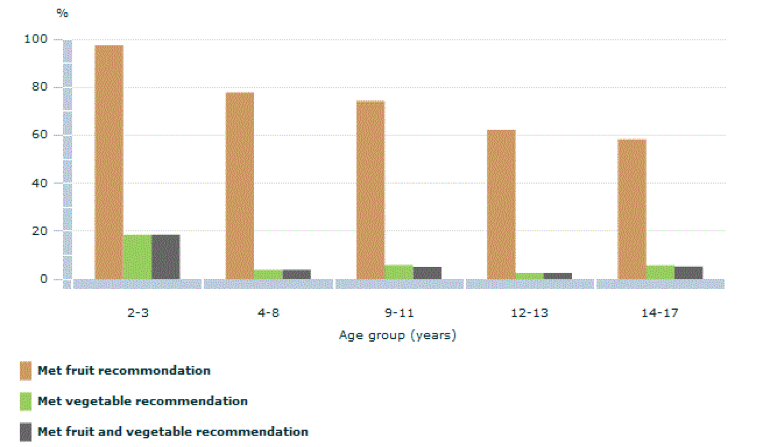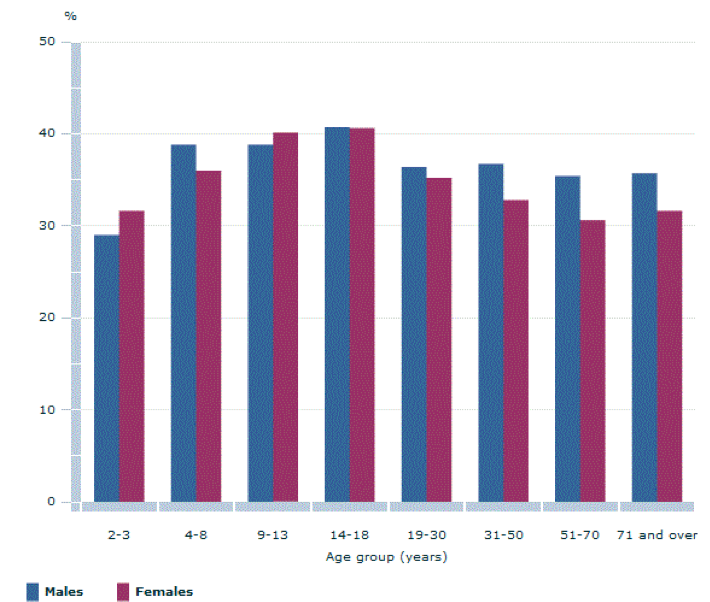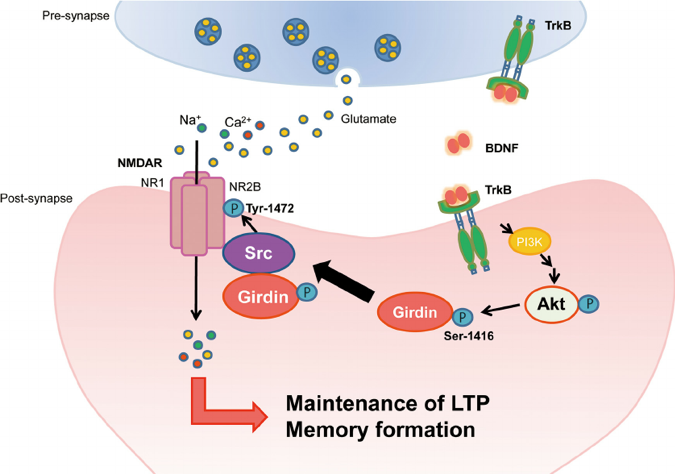Research has found significant positive associations between diets high in nutritional quality and superior academic performance in children and adolescents. This may provide appropriate incentive to boost adolescents’ motivation to make better diet choices.
The associations between diet quality and academic performance
There is a growing body of research that demonstrates a high quality diet, characterised by greater consumption of fruit and vegetables, reduced intake of saturated fats and refined sugars, and increased intake of essential fatty acids, is linked with improved academic performance.
An Australian study of students aged between 8 and 15 found that eating vegetables daily was significantly associated with higher National Assessment Program – Literacy and Numeracy (NAPLAN) achievement. The greatest variation in results was seen in the writing domain between children that consumed vegetables seven nights a week and those that ate none.[1] Specifically, consumption of yellow and red vegetables has been significantly correlated with higher academic performance.[2]
Consumption of sugar-sweetened beverages (SSB) was associated with lower NAPLAN performance scores. The greatest effect for SSB consumption was in reading between children that consumed 4-6 glasses of SSB per day and those that consumed less than one glass per day.[1]
The magnitude of difference in NAPLAN scores, associated with SSB and vegetable consumption, were such that they could represent an elevation in results through one or more performance bands or make the difference between meeting and not meeting the NAPLAN minimum standard of performance.[1]
Similarly, a study of 5200 Grade 5 students in Canada found that children with the nutritionally highest quality diet were 30% less likely to fail a standardised literacy assessment relative to those students with the poorest diet quality, even after adjusting for differences with respect to gender, parental income and education.[3]
Collectively, results of longitudinal and cross-sectional studies, predominantly conducted in developed countries, suggest that better academic outcomes are associated with maintaining a healthy diet.[4] Overwhelmingly, data points to the excessive consumption of energy-dense, high fat, high sugar foods as detrimentally impacting children’s learning ability.
Mechanisms of action underlying impact of poor diet on academic performance
The key negative impact of diet on learning appears to occur in relational memory formation, a vital cognitive function that underlies learning capacity and is regulated by the hippocampus. Relational memory involves our ability to flexibly recall multiple components of a scene including people, places and/or objects and their spatial and temporal context, an essential requirement for learning and academic achievement.[5]
A study of healthy 20 year old university students that consumed a high fat, high sugar breakfast over four consecutive days found that students developed significantly poorer memory recall compared to students who consumed a breakfast of similar palatability but lower in saturated fats and refined sugars.[4]
Reduced cognitive function was also seen in a cohort of healthy young men when they exhibited impaired attention, decreased speed of retrieval and depressed mood after just five days of consuming a diet consisting of 75% fat.[6] Similar negative correlations between saturated fatty acid intake and hippocampal dependent memory learning and memory have also been observed in children.[5] The question naturally arises, what is the mechanism for such an impact?
Brain-derived neurotrophic factor mediates hippocampal memory function
Diet-induced hippocampal cognitive impairment is thought to occur as result of decreased expression of brain-derived neurotrophic factor (BDNF), a neurotrophin that is essential for mediating hippocampal-related learning and memory.[6,7]
BDNF is expressed abundantly in the hippocampus[8] and is up-regulated during memory acquisition, suggesting BDNF plays a key role in learning and memory function.[9] Understanding the impact diet quality has on BDNF is therefore important to support learning processes essential for optimal academic performance.
The mechanism by which BDNF governs memory creation is via its influence on neuronal plasticity.[10] Memory formation involves short-term changes in electrical properties and long-term structural alterations of synapses.[9] However, it is BDNF’s ability to regulate synaptic strength that is the considered the key determining factor in hippocampal-mediated learning.
BDNF initiates signalling systems at pre- and post-synaptic receptors[11] that result in enhanced long-term potentiation and improved synaptic efficacy (Figure 1). Maintenance of long-term potentiation is the primary mechanism that underlies memory acquisition,[7] therefore BDNF, through its influence on synaptic strength, is fundamental to relational memory formation.
| Figure 1. BDNF and memory function [12] |
|---|
|
BDNF binds to pre- and post-synaptic receptors triggering activation of pathways that lead to enhanced long-term potentiation and memory formation. |
Interference with BDNF or its receptor has been shown to reduce synaptic plasticity and neurogenesis,[8] resulting in impaired memory formation as demonstrated in animals that have undergone BDNF gene deletion.[11] BDNF-mutant mice also display long-term potentiation deficiency which is restored by the re-expression of BDNF.[9] The negative correlation between high fat, high sugar diets and impaired hippocampal-mediated learning and memory formation may suggest BDNF function is disrupted by excessive fat and sugar intake.
Animal studies demonstrate that diets high in saturated fats promote neuronal oxidative stress and increase secretion of inflammatory cytokines such as IL-1B and IL-6[8] which down-regulate hippocampal BDNF expression.[6] Consumption of a high fat and high sugar diet for two months impaired spatial learning performance in animals and reduced synaptic efficacy proportionally to the lowered levels of BDNF in the hippocampus of the animals.[10] This indicates BDNF expression has a direct influence on synaptic plasticity. It is likely that compromised synaptic efficacy is a result of reduced signal-transduction modulation by BDNF[11] which diminishes synaptic strength and reduces long-term potentiation, leading to impaired learning and memory formation.
The deleterious effect of a western diet on the maturing hippocampus in childhood and adolescence warrants special attention. Research comparing the effect of a high fat diet in juvenile and adult mice for 11 weeks found relational memory flexibility in the juvenile high fat diet group was severely impaired however the adult group did not produce any cognitive deficits whilst maintaining the same diet. Further, in the juvenile high fat diet group there was a significant reduction in hippocampal neurogenesis that was not seen in the adult high fat diet group. Thus, juvenile mice were more susceptible to the effects of a high fat diet, both in terms of relational memory loss and diminished neurogenesis.[13]
It remains to be determined how a high energy diet translates into reduced BDNF levels in humans[6] and associational findings cannot determine causality. However, animal studies demonstrate that diets high in saturated fats and refined sugar promote neuro-inflammation which reduces BDNF expression[8] and synaptic efficacy.[10] These findings establish a potential causal pathway for the decrements observed in hippocampal-mediated learning and memory formation resulting from a high fat, high sugar diet.
Omega-3 fatty acids enhance cognition and academic performance
Whilst saturated fatty acid intake is linked with reduced learning and memory performance, consumption of omega-3 polyunsaturated fatty acids is positively associated with hippocampal dependent relational memory.[5]
After adipose tissue, the brain is the organ richest in lipids representing 60% of its dry weight and 80% of nerve cells.[14] Docosahexaenoic acid (DHA) is the most abundant omega-3 fatty acid in the brain, constituting more than 30% of the total phospholipid composition of plasma membranes, thus DHA is vital for maintaining membrane integrity and consequently neuronal excitability and synaptic function.[11] Critically, humans are not efficient at producing DHA endogenously so are largely dependent on dietary sources of omega-3 fatty acids, which are found in fish and seafood.[15]
Observational studies have found positive associations between levels of fish intake (as the primary source of omega-3 fatty acid) and academic performance in adolescents. Further, in a study of 14 year olds, blood levels of omega 3-fatty acids were found to be significantly associated with better information processing speed, a measure of cognitive performance.[16] Research also suggests that DHA supports BDNF function, as omega-3 levels have been correlated with serum BDNF levels in adolescents.[17]
In animal studies of brain trauma, DHA supplementation normalised levels of hippocampal BDNF following brain injury, reduced oxidative damage and counteracted impaired learning ability.[18] Thus it is thought that DHA plays a critical role in modulating neurogenesis and synaptic plasticity as well as inhibiting neuroinflammation.[6]
Human intervention studies also demonstrate that supplementation with omega-3 fatty acids improves cognitive status in young adults[6] and improves processing speed in marginally malnourished children aged 8-12years.[16]
Dietary carotenoids enhance hippocampal-mediated memory function
Fruit and vegetables provide antioxidant and anti-inflammatory nutrients that help counter neuro-inflammation and protect mitochondrial DNA from oxidative stress.[1] Lutein and zeaxanthin, plant-pigment carotenoids, have received particular attention because they are not produced endogenously and must be obtained via the diet. Lutein comprises 59% of carotenoids in the infant brain and 34% in geriatric adults suggesting increased requirements in developmental years.[19] Food sources rich in lutein and zeaxanthin include dark leafy greens like kale and spinach, cruciferous vegetables and some fruits.[20]
Lutein and zeaxanthin preferentially accumulate in the retina of the eye where they form macular pigment that protects the macula against oxidative damage.[20] Measurement of macula pigment density, known as macular pigment optical density (MPOD), has been positively correlated with measures of hippocampal-dependent cognitive functioning.[21] In pre-adolescent children, MPOD measurement has been positively associated with academic achievement, aspects of relational memory and cognitive control performance.[19] Other research in children has shown MPOD significantly predicts hippocampal-dependent memory performance.[20] Collectively, the research suggests lutein and zeaxanthin contribute to optimal relational memory in children.
Visual processing speed, a cognitive function that is ordinarily correlated with reading speed and executive cognitive function, is enhanced with lutein and zeaxanthin supplementation. In a study of healthy young adults, both lutein and zeaxanthin led to increased measures of MPOD and improved visual processing speed compared to the placebo group where no changes in MPOD or visual processing speed were observed.[21]
In vitro studies have demonstrated that carotenoids promote formation of gap junctions between cells that could improve cell-to-cell communication and potentially lead to enhanced efficiency of processing speed within the visual system,[19] although this possibility remains to be established. Given the high metabolic load of the brain, which represents 2% of body weight yet is responsible for 20% of basal metabolic rate,[14] it is more likely that dietary carotenoids have antioxidant and anti-inflammatory effects in the hippocampal region, thereby reducing oxidative stress and supporting hippocampal function.[20]
Whilst further research is needed to elucidate precisely how dietary lutein and zeaxanthin influence hippocampal function, there is a clear positive association between MPOD, a measure of lutein and zeaxanthin in the retina, and levels of lutein and zeaxanthin in the brain.[21] Measures of MPOD are positively correlated with hippocampal-dependent cognitive outcomes in children.
Why is the relationship between diet and academic performance important?
It is well known that Australian children have mixed exposure to healthy eating. In 2017-18, in Australian children aged 2-17 years:[22,23]
- 73% ate the recommended serves of fruit
- 6.3% ate the recommended amount of vegetables
- 6% met the guidelines for the recommended number of serves of both fruit and vegetables
- 8-9 out of 10 do not consume any fish
- 6% met the recommended intakes of omega-3 fatty acids
|
Figure 2: Recommended fruit and vegetable serves per day children 2-17years [24] |
 |
Further, 31.1% of Australian children aged 2-17 years consumed SSB one to three days per week and those who drank SSB daily consumed on average 2.4 cups per day.[22]
To date, policy makers have focused healthy eating efforts on reducing the level of advertising and targeted marketing of confectionary and snack foods high in saturated fats and refined sugars. However, consumption of discretionary foods (energy-dense, nutrient-poor food and drink considered unnecessary to meet nutritional needs of the body) accounts for 41% of daily energy intake in 14-18 year olds.[25]
|
Figure 3: Proportion of children aged 2-17 years meeting fruit & vegetable intake recommendations in 2017-18 [22] |
 |
It is therefore not surprising that one quarter of Australian children and adolescents are overweight or obese, a statistic that has remained stable over the last decade.[22] Adolescent boys fare the worst with nearly 40% of 16-17 year olds classified as overweight or obese[22], a clear indication that current health promotion strategies have failed to inspire healthy eating behaviour in our youth.
|
Figure 4: Proportion of total energy intake from discretionary foods in persons aged 2 years and over [25] |
 |
Future negative consequences, such as the possibility of ill health later in life, have proven a poor incentive for adolescents to make better diet choices. While there is a health prerogative to improve eating habits, linking diet quality to shorter term positive outcomes may increase motivation for change.[26] The relationship between diet and academic performance may be one such outcome.
Research confirms better academic performance is significantly associated with increased consumption of vegetables, decreased intake of saturated fat and refined sugar and increased consumption of essential fatty acids. The negative impact of excessive saturated fat and sugar intake in animal models has identified the adverse effects on BDNF function as the driver of reduced flexible memory formation that impedes optimum academic achievement.
More research is needed to determine the role specific nutrients in vegetables, such as lutein and zeaxanthin, in learning and memory formation, but the positive associations with cognition and scholastic outcomes are clear. Similarly, omega-3 fatty acid and DHA intake in particular have also been correlated with higher academic performance, however the precise mechanism by which DHA influences hippocampal learning is yet to be established.
Can our kids eat their way smarter? The evidence suggests they can. This presents an opportunity to reframe the importance of consuming a healthy diet around optimising academic performance, a likely attractive incentive to motivate adolescents, and their parents, to make positive dietary changes.
References
- Burrows T, Goldman S, Olson RK, et al. Associations between selected dietary behaviours and academic achievement: A study of Australian school aged children. Appetite 2017;116:372-80. [Abstract]
- Nyaradi A, Li J, Hickling S, et al. A Western dietary pattern is associated with poor academic performance in Australian adolescents. Nutrients 2015;7(4):2961-82. [Full Text]
- Florence MD, Asbridge M, Veugelers PJ. Diet quality and academic performance. J Sch Health 2008; 78:209-215 [Full Text]
- Correa-Burrows P, Rodríguez Y, Blanco E, et al. Snacking Quality Is Associated with Secondary School Academic Achievement and the Intention to Enroll in Higher Education: A Cross-Sectional Study in Adolescents from Santiago, Chile. Nutrients 2017;9(5):433. [Full Text]
- Baym C, Khan N, Monti J, et al. Dietary lipids are differentially associated with hippocampal-dependent relational memory in prepubescent children. Am J Clin Nutr 2014;99(5):1026-33. [Full Text]
- Beilharz J, Maniam J, Morris M. Diet-Induced Cognitive Deficits: The Role of Fat and Sugar, Potential Mechanisms and Nutritional Interventions. Nutrients 2015;7(8):6719-38. [Full Text]
- Leal G, Afonso PM, Salazar IL, et al. Regulation of hippocampal synaptic plasticity by BDNF. Brain Research 2015;1621:82-101. [Abstract]
- Kanoski SE, Davidson TL. Western diet consumption and cognitive impairment: Links to hippocampal dysfunction and obesity. Physiology & Behavior 2011;103(1):59-68. [Full Text]
- Yamada K, Mizuno M, Nabeshima T. Role for brain-derived neurotrophic factor in learning and memory. Life Sciences 2002;70(7):735-44. [Abstract]
- Molteni R, Barnard RJ, Ying Z, et al. A high-fat, refined sugar diet reduces hippocampal brain-derived neurotrophic factor, neuronal plasticity, and learning. Neuroscience 2002;112(4):803-14. [Abstract]
- Fernando G-P. Brain foods: the effects of nutrients on brain function. Nature Reviews Neuroscience 2008;9(7):568. [Full Text]
- Nakai T, Nagai T, Tanaka M, et al. Girdin Phosphorylation Is Crucial for Synaptic Plasticity and Memory: A Potential Role in the Interaction of BDNF/TrkB/Akt Signaling with NMDA Receptor. The Journal of Neuroscience 2014;34(45):14995-15008 [Full Text]
- Boitard C, Etchamendy N, Sauvant J, et al. Juvenile, but not adult exposure to high‐fat diet impairs relational memory and hippocampal neurogenesis in mice. Hippocampus 2012;22(11):2095-100. [Abstract]
- Benton D. The influence of children's diet on their cognition and behavior. European J Nutr 2008;47 suppl 3(3):25-37. [Full Text]
- Swanson D, Block R, Mousa SA. Omega-3 fatty acids EPA and DHA: health benefits throughout life. Advances in nutrition (Bethesda, Md) 2012;3(1):1-7. [Full Text]
- van der Wurff ISM, von Schacky C, Berge K, et al. Association between Blood Omega-3 Index and Cognition in Typically Developing Dutch Adolescents. Nutrients 2016;8(1):13. [Full Text]
- Ferreira CF, Bernardi JR, Bosa VL, et al. Correlation between n-3 polyunsaturated fatty acids consumption and BDNF peripheral levels in adolescents. Lipids in health and disease 2014;13:44. [Full Text]
- Wu A, Ying Z, Gomez-Pinilla F. Dietary omega-3 fatty acids normalize BDNF levels, reduce oxidative damage, and counteract learning disability after traumatic brain injury in rats. Journal of neurotrauma 2004;21(10):1457-67. [Abstract]
- Saint S, Renzi-Hammond L, Khan N, et al. The Macular Carotenoids are Associated with Cognitive Function in Preadolescent Children. Nutrients 2018;10(2):193. [Full Text]
- Hassevoort KM, Khazoum SE, Walker JA, et al. Macular Carotenoids, Aerobic Fitness, and Central Adiposity Are Associated Differentially with Hippocampal-Dependent Relational Memory in Preadolescent Children. The Journal of Pediatrics 2017;183:108-14.e1. [Abstract]
- Bovier ER, Hammond BR. A randomized placebo-controlled study on the effects of lutein and zeaxanthin on visual processing speed in young healthy subjects. Archives of Biochemistry and Biophysics 2015;572:54-7. [Abstract]
- Australian Bureau of Statistics. National Health Survey: First Results, 2017-18. Catalogue No. 4364.0.55.001. Commonwealth of Australia; 2018. [Source]
- Meyer BJ, Kolanu N. Australian children are not consuming enough long-chain omega-3 polyunsaturated fatty acids for optimal health. Nutrition 2011;27(11 12):1136. [Full Text]
- National Health and Medical Research Council. Eat for Health Australian Dietary Guidelines. Australian Government; 2013. [Source]
- Australian Bureau of Statistics. Australian Health Survey: Nutrition First Results - Foods and Nutrients, 2011-12 Catalogue No. 4364.0.55.007. Commonwealth of Australia; 2014. [Source]
- Chan HSK, Knight C, Nicholson M. Association between dietary intake and ‘school-valued’ outcomes: a scoping review. Health Education Research 2017;32(1):48-57. [Abstract]
DISCLAIMER:
The information provided on FX Medicine is for educational and informational purposes only. The information provided on this site is not, nor is it intended to be, a substitute for professional advice or care. Please seek the advice of a qualified health care professional in the event something you have read here raises questions or concerns regarding your health.




